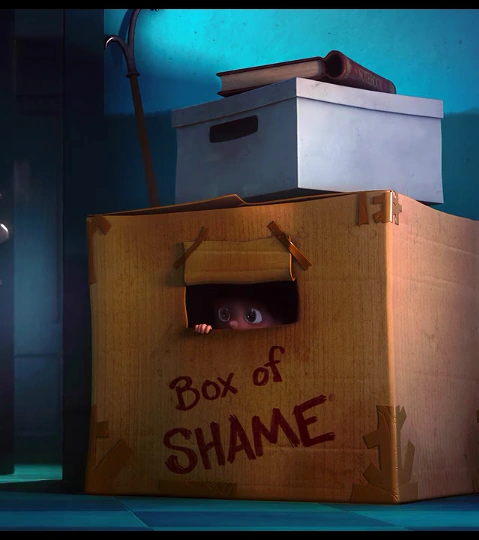Complexity kills consumer engagement
I was reading Reed Hastings "No Rules Rules" again to make some management slides for my team meeting. Although my industry is different but the style apply to any industry. The book offers a captivating glimpse into the early days of Netflix and its revolutionary approach to the streaming television industry. In the early 2010s, the company was grappling with the complex challenges of transitioning from a DVD-by-mail service to a streaming platform. The television landscape was dominated by traditional cable and satellite providers, and there was significant skepticism about the viability of a subscription-based streaming service.
Netflix faced numerous obstacles in its quest to disrupt the status quo. One of the biggest challenges was securing content rights from major studios and production companies. These companies were reluctant to license their content to a relatively unknown upstart, and negotiations were often fraught with tension. Additionally, Netflix had to invest heavily in building its streaming infrastructure and developing a user-friendly platform that could compete with the established players in the market.
Despite these hurdles, Netflix remained steadfast in its vision of a subscription-based streaming service. The company's leadership recognized the potential of the internet to revolutionize the way people consume entertainment, and they were determined to capitalize on this opportunity. Netflix pioneered a number of innovative strategies, including binge-watching and original programming, that would ultimately reshape the television industry.
One of the most significant factors in Netflix's success was its ability to adapt to changing consumer preferences. The company closely monitored user behavior and data to identify trends and preferences. This data-driven approach allowed Netflix to tailor its content offerings to meet the needs of its subscribers, ensuring that they remained engaged and satisfied with the service.
Get more done with less people, means taking some risk
We do that in my industry a lot, oil & gas exploration. We take a lot of risk, and industry exploration success rate is about 10%. Lately, as the global demand is on the rise, I am encouraging my team to take more risks and bring forward more risky ideas. Trouble is if people bring forward more risky ideas, chances are some of those ideas will be failures for sure, but perhaps one or two will shine and pay off for all others.

So, what do we do if a team member's idea fails? Put them in box of shame? Like the image above? No, that will essentially guarantee that no one will come forward with any innovative idea. The method suggested at Netflix are as follows:
- Ask what learning came from the project.
- Don’t make a big deal about it.
- Ask her to “sunshine” the failure. Meaning, use the failure as a educational module for learning exercise.
Netflix streaming example in 2010
This one I remember personally. Back in those days, you can only stream videos to TV via a Nintendo Wi or an Xbox, and that too via monster cables. Netflix had a project called "Explorer" that they ran a pilot to test on 200K customers.It was too complex and customers hated it. Needless to say, it was a failure at the time. It was just ahead of time and industry and consumers were not ready for it. It was a failure, but Netflix teams learned from it and that essentially made them the most successful streaming service 10 years later.
Chris Jaffe, the director of product innovation was in charge of this project. In fact it was his personal idea. He wrote the following when he was presenting his failed project to the CEO Reed Hastings:
I talked about the project, detailing every part that had and hadn’t
worked and explaining that this had been one hundred percent my
bet. Reed asked some questions and we talked about which parts of
the project led to the flop. Then he asked what we’d learned. I told
him we’d learned that complexity kills consumer engagement. That,
by the way, is a lesson that the entire company now understands as
a result of the Explorer project.
“Okay, that’s interesting. Let’s remember that,” Reed concluded. “Well
that project’s over. What’s next?”
Reed asked what they learned from it, and he didn't make a big deal about it. It observed it, and moved on. He took the whole event as a training project, and a learning exercise. This is the right way to champion a failure.


There's pedagogy that strongly suggests that to teach students that there are no mistakes, only learning opportunities. Gone are the days you tell kids they have brains like sieves or cabbages (my applied maths teacher). If you are taught that mistakes are necessary and valuable, you encourage risk taking and confidence and eventually, it is hoped, success. This is real world learning, and of course extends to business.
I still remember going to the DVD shop and spending an hour choosing ten videos for the week, usually a combo of arthouse and thriller. Streaming as a concept sounded so radical and futuristic. Imagine if they'd quit at the first mistake. I guess I wouldn't be moaning that there was nothing on any of the ten odd streaming services we have access to here. By the same token, maybe we'd still have arthouse films instead of streaming services supplying films based on what the majority of consumers seem to want, and then we go ahead and watch those things because there's nothing else to watch, which means apparently we want just them.
Damn I miss wierd arthouse films.
I had my fair share of spankings from teachers back in the days at school. It was normal then. Most people dealt with it okay, but I have seen quite a few who couldn't and their lives were destroyed.
First forward 40 years and now my kids are going to school in a different country and I must say a lot has changed for the better. Is it perfect? No. But it is definitely far better.
Regarding the DVD rental, my wife and I was working on our PHD at Norman, OK when Netflix started the mail order DVD rental. We were some of the first customers and we still are quarter century later. We can seen how they took over the evil business by blockbuster! I also remember their slips along the way. We stayed with them over the years. Held their stock over the years too. All helped us handsomely to financial freedom.
That's the rub, hey - teachers are just as influential as parents sometimes. I can see how many people are resentful of them as they have such awful memories of the bad ones. I was lucky really - even that Maths teacher said such things tongue in cheek and was a good guy. My literature teacher was so passionate and kind she made me become one. And like in any profession, there's people really good at their job and those who should not be teaching, though the majority wouldn't do it if they didn't like kids.
Now of course there are laws to stop you being cruel to kids (mostly) and it's swung sooo far that teachers are blamed for everything. Kid never works, misbehaves and fails? Teachers fault. Government enforced curriculum not to parents liking? Teachers fault. It's a really tough profession.
Oh God I entirely forgot about the DVD by post thing!!! We started doing that too. Gosh that must have taken some doing. That's cool you profited from their stock!
I'll check out Roma. I love Alfonso Cuaron, but for some reason I missed this one.
Roma!
I read part of the book; I need to finish it, but that philosophy within Netflix should be seen as something mandatory or rather something normal.
For example, in the my field (medicine), a mistake can take a patient's life, so to avoid making errors, you must practice and take risks while you're learning. However, you shouldn't focus on whether you do it wrong and fail, but rather on what you will learn if you fail and how you can improve it so that you don't fail in the future. That should be the case in everything. Unfortunately, it’s not like that, and people put so much pressure on themselves not to fail that it’s seen as a disappointment for everyone, which it shouldn’t be
Your field is very difficult. You play with human life every time you do an operation! That is a lot of responsibility.
Cool write up dude. This book just made my list. Brilliant disruption. Who's gonna be next to disrupt our now 'traditional' media?
It is an easy read. A real page turner, grabs you from page 1. You will see so many things that Splinterlands did incorrect from this write up. It also discusses how you fix it.
That's a very interesting philosophy and I like that idea. It's too bad that more companies don't run that way. I wonder what kind of awesome innovation we would have if they did. I remember getting my three DVD's at a time in the mail back in the day. How things have changed!
Yes. I remember too. The red envelope. I think we had 1dvd subscription first. We were students. :)
Yeah, I hear you there. I probably went that way too. I had friends that basically just ordered everything so they could rip it. Even if it was a movie they didn't care about.
And to date they still have the slickest interface and best UX!
It's totally true. You see it all the time usually in things that are failing. People hate that old shit. I think it's why Apple became so successful with their phones because they abandoned all the deeply buried menus of previous OS's and went for something simple and straightforward
I found that book very useful. Although our industry is far apart for tech and media, but principles can be applied unchanged.
Not sure if this post was meant for Splinterlands but I'll apply your perspective here and say that the team has done relatively well with less people after 2 rounds of layoffs. We've seen them take risks and implement some revolutionary ideas, and we've also seen them take risky ideas from the community and add them in as well so the collaboration has been fantastic. Let's hope they have the same success and it pays off for them in 2025 like it did for Netflix!
Everything is meant for Splinterlands now :)
I have a phrase for you. Talent Density.
I will write about it soon :)
Wishing you a great success in your dealings today
Ohhh
This is quite a nice piece of advice.
I don't regularly read motivational or business books...
But this was nice.
This is a easy read
Good read 👍
Cheers!
I think giving people the opportunity to take risks and fail is a key part of business. I like a management team that understands this and can learn from the lessons this risk teaches.